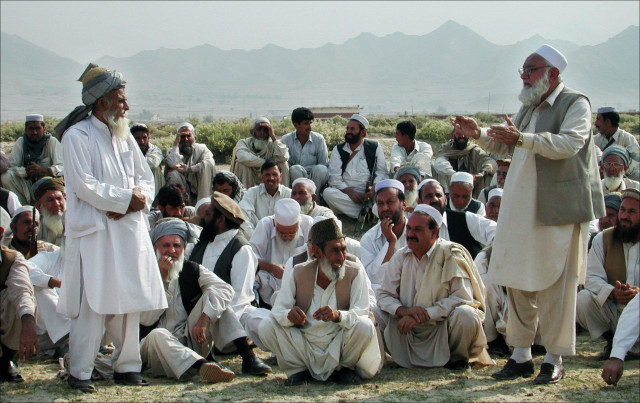Dealing with FATA
Peace would never come to the tribal areas as long as it remains out of Pakistan’s judicial jurisdiction

To ensure complete ownership of the reforms by the people of Fata, it would be advisable to include in the committee at least one or two representatives representing the majority voice of the region. PHOTO: AFP
Clearly, pressure seems to be mounting on the government to bring the region into the national mainstream. The formation of the five-member committee under Sartaj Aziz could mean either the government is trying to shelve the reforms for the time being for reasons unknown or it is sincerely trying to quicken the process but wants to proceed with extra caution to ensure that no undesirable side effects follow the reforms. In any case, to ensure complete ownership of the reforms by the people of Fata, it would be advisable to include in the committee at least one or two representatives representing the majority voice of the region. One of the members of the committee, SAFRON Minister Lt General (retd) Abdul Qadir Baloch, seems to think that more than reforms, what is urgently needed in Fata is development, and that reforms should follow the restoration of peace and not the other way round. This is like putting the cart before the horse. No development can take place in Fata with the area continuing to suffer from its current state of lawlessness. And peace would never come to the tribal areas as long as it remains out of Pakistan’s judicial jurisdiction. Inclusion of National Security Adviser Lt General (retd) Nasser Janjua in the committee indicates a desire to protect the country’s strategic interests while finalising the reforms. This is welcome but one should keep in mind that despite the existence of the harsh laws, all these years, the area has remained strategically vulnerable, lately turning into a safe haven for militants waging war against Pakistan. So, strategically speaking, bringing the region into the national mainstream would be the right thing to do.
Published in The Express Tribune, November 15th, 2015.
Like Opinion & Editorial on Facebook, follow @ETOpEd on Twitter to receive all updates on all our daily pieces.













COMMENTS
Comments are moderated and generally will be posted if they are on-topic and not abusive.
For more information, please see our Comments FAQ